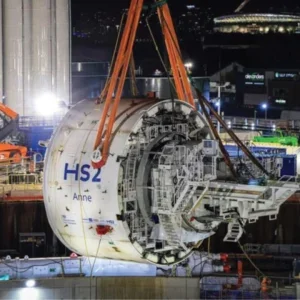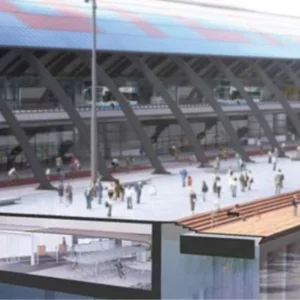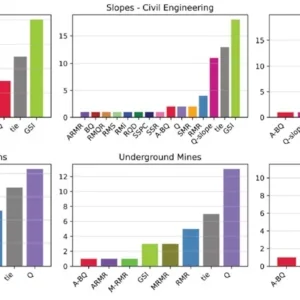Per Nielsen was, until the spring of this year, NCC‘s representative and project director for Øresund Tunnel Contractors (ØTC), the consortium responsible for construction of the Øresund Tunnel. When the decision was made to appoint the previous president of NCC International, Anders Brolin, to be head of the group’s new BOT operations, Nielsen was the natural choice to succeed him – particularly since the appointment coincided with the successful completion of the civil works for the Øresund Tunnel.
During the last five years, NCC has merged with Siab (the third largest Swedish contractor at the time of the merger) and acquired subsidiary companies in Denmark, Finland and Norway. Turnover more than doubled, rising from $1.9bn in 1994 to $4bn in 1998.
As a result of these acquisitions, together with natural growth, NCC has become the leading construction and real estate company in the Nordic countries and the Baltic region, with operations outside Sweden accounting for approximately half of total turnover.
The group has much experience of underground construction, with projects ranging from rock tunnels to caverns for underground storage and, most recently, immersed tube tunnels. In order to benefit from the expertise available throughout the NCC Group, an underground construction group has been formed to cover all the companies within the group. "This means that, when NCC International obtains a contract with an underground content, we can draw on the experience of our underground construction group," explains Nielsen.
NCC’s operations in Denmark, Finland and Norway are conducted through its subsidiaries NCC Rasmussen & Schiøtz, NCC Puolimatka and NCC Eeg-Henriksen respectively. NCC is also active in Germany via its wholly owned subsidiary NCC Siab, and in Poland through the recently established subsidiary, NCC Polska. All foreign subsidiaries are owned outright.
NCC’s Norwegian subsidiary NCC Eeg-Henriksen is particularly experienced in the field of underground construction, having undertaken many projects in Norway. Among those the company is working on at present are the $130m Laerdal Tunnel and the $32m Bomlafjord Tunnel that is 7820m long and 260m below sea level.
"The Scandinavian subsidiaries are all engaged in international operations in their own right but we co-operate on major international projects wherever they may be throughout the world," declares Nielsen. "This way we can use the experience of individuals throughout the group."
An example of such co-operation is the Stockholm Södra Länken Road Tunnel, where NCC has been awarded two of the rock tunnel contracts but one of them is being undertaken by NCC Eeg-Henriksen. Also working on this project is NCC’s foundation engineering subsidiary Hercules Grundläggning (Hercules Engineering), a leader in foundation engineering in the Nordic area. Hercules is undertaking piling and jet grouting in JV with Italian company Trevi.
Although the NCC Group undertakes all kinds of operations, NCC International specialises in certain types of project and markets. "You have to choose a strategy when working abroad," says Nielsen. "It is necessary to have some kind of advantage or competitive edge and this can be the product or the market or, under the best circumstances, both."
NCC also tries to procure and use as much as possible locally. "You can find skilled labour in countries where you would not normally expect to," continues Nielsen. "You can hire skilled workers more or less wherever you go. You need, of course, to undertake rigorous quality assurance but we have specialist staff within the group who are trained to do this."
Nielsen sees growth occurring primarily through geographic expansion in regions around the Baltic Sea, with the emphasis on demands for good profitability and high market share. This is exemplified by the acquisition of Danish company Superfos Construction in February this year. Superfos has now been incorporated into NCC Rasmussen & Schiøtz, making the latter the largest construction company in Denmark. NCC is also considering acquiring other companies in Europe that meet its requirements.
International projects
In the field of international project operations, Nielsen sees expansion through natural growth combined with acquisitions and alliances. International project operations are focused primarily on the Baltic countries, Central Europe, Russia, the Middle East and South East Asia.
In order to enhance the group’s opportunities to engage in major infrastructure projects, NCC participates in three different alliances. For example, the company has entered an exclusive co-operation venture with Italian construction company Impregilo to cover major projects in Russia and the Baltic States. This venture is being run under the name IGL-NCC Contractors and the first result is a $117.6m contract for rebuilding a section of the St Petersburg Metro (Jan ’99, p6).
|
“When NCC International obtains a contract with an underground content, we can draw on the experience of our underground construction group” |
St Petersburg Metro
"This project is now well under way and, so far, the progress has been as planned," explains Nielsen. "At present, the ground in the area is being stabilised and, provided the money is available as planned, tunnel boring should start in November this year. A shortage of money is a problem with most projects in Russia but the finances for this project are state guaranteed and, so far, the money has been paid on time."
NCC works independently in the Russian market through its Finnish subsidiary NCC Puolimatka International, which is a relatively small company that has its roots in the Finnish company’s interests in the former Soviet Union. It undertakes projects with an upper limit of approximately $50m, while IGL-NCC Contractors undertakes larger contracts.
NCC is also a member of the INS alliance, together with Impregilo, which was formed to work on major projects in South East Asia.
The third alliance in which NCC is involved is the Société Européenne de Construction (SEC) with Strabag; John Laing (UK); and Dumez GTM Entrepose (France). Laing and NCC are part of the ØTC consortium of contractors that have built the Øresund Tunnel, but the SEC alliance has also proved valuable for inter-company training purposes and benchmarking.
The $532m Øresund Tunnel project, at 3.7km long and 40m wide, is the world’s largest immersed tube tunnel. In addition to NCC, the ØTC consortium consists of Pihl (Denmark); Dumez GTM (Fr0ance); John Laing (UK); and Boskalis Westminster Dredging (the Netherlands). Although the tunnel will not be opened until the entire Øresund Fixed Link is complete in mid 2000, the civil construction works are now complete.
Another major project for which the construction work has recently been completed is the Arlanda Rail Link in Sweden. This $541m project is due for commissioning this autumn. It has been constructed as a BOT project with NCC/Siab (now NCC) as the contractor and also as a major shareholder in the concessionaire A-Train. The project involved constructing three underground railway stations beneath the terminals at Arlanda in poor rock, with very small rock cover and high loads from the terminals.
The experience gained from the Arlanda Rail Link project has led NCC to set up its own BOT department. "The trend in the international arena is for more and more projects to be carried out as BOT projects," says Nielsen. "It is a very expensive and time-consuming process for a contractor and therefore restricts the number of companies that can participate. In view of this, it opens up a new market for companies such as NCC with sound finances.
"A BOT project should be seen as two different types of business, the concession business and the contracting side," continues Nielsen. "If the two are not separated you will not be able to optimise the project as a whole. This is why we have decided to set up a department to specialise in the concession business, which is a support to the core business of NCC, which is construction."
Hydro power
The NCC Group is also particularly strong in hydro power and has, with Skanska, recently signed a memorandum of understanding for a turnkey contract relating to a 330MW hydropower plant in Kashmir, India. This will involve a considerable amount of underground construction and will be similar to the project that the two companies built at Uri in Kashmir.
"We gained a great deal of experience of working in this region when we built the Uri plant and this will be of great benefit for the new plant," says Nielsen. "However, obtaining state guarantees for financing projects in Kashmir is a major challenge because of the limited ability of the state to provide them. So this is where we are focusing our activities at present."
Other specialist areas for NCC are rock caverns for underground storage and metro systems. An example of the latter is the Copenhagen Metro, where NCC is involved through its Danish subsidiary NCC Rasmussen & Schiøtz – one of six international companies that form the Copenhagen Metro Construction Group (COMET), the consortium undertaking the work (Oct, ’99, p611).
Nielsen sees the environment and environmentally sound construction as increasingly more important. "In the past, quality and methods gave European companies a competitive edge, but in the future, our competitive edge could be projects designed and constructed in an environmentally sound way," he says. "In countries like Sweden, owners and clients already demand environmentally sound construction and so we can benefit from our experience in this field by exporting the concept."






